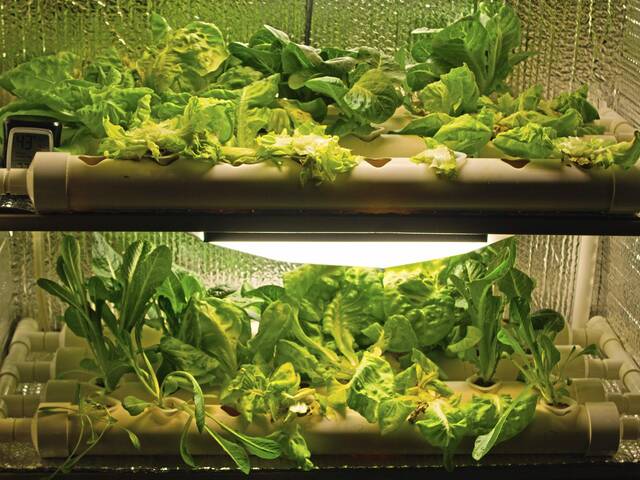https://triblive.com/local/westmoreland/hempfield-area-aims-to-add-composting-hydroponics-to-stem-curriculum/
Hempfield Area aims to add composting, hydroponics to STEM curriculum

Hempfield Area students will get to put their science lessons into action through the help of a donation of composting tools from Westmoreland Cleanways.
The school board voted unanimously Monday evening to accept a donation from the Unity-based nonprofit. The district will receive three compost bins and two tools intended to accelerate the decomposition process — an earth machine and a rotating compost tumbler.
The district plans to use the composting equipment to teach science to its students, said Deputy Superintendent Emily Sanders. It will complement an ongoing effort to expose students to hands-on STEM learning opportunities, she said.
“I love when we can do hands-on things,” Sanders said. “I really like the kids to be involved — not just sit and learn from a textbook or worksheet.”
The district also plans to purchase hydroponics plant-growing systems, she said.
Hydroponics uses a water-based nutrient solution instead of soil to grow plants, according to the National Agricultural Library. The method is most commonly used by commercial enterprises, hobbyists and small-scale farmers.
The systems will be purchased through the help of a $50,000 Mobile Math and Science grant the district received from the state Department of Education in September, Sanders said.
Hydroponics has cropped up in Western Pennsylvania’s school districts in recent years — including Franklin Regional Intermediate School and Bethel Park’s Neil Armstrong Middle School.
High school students enrolled in the district’s project-based STEM class will test out the hydroponics and composting equipment and help the elementary and middle school students learn how to use it, Sanders said.
An outdoor classroom at Stanwood Elementary may further Sanders’ goal to engage students in STEM learning, she said.
The district is applying this month for a grant from Pittsburgh-based education organization Remake Learning, which would finance the outdoor classroom space, Sanders said.
Related:• School districts showcase STEM with ‘Remake Learning Days’ events
“If we would get that grant, that would be, maybe, our guinea pig in having an outdoor classroom,” she said. “We’re calling it ‘From Soil to Sky.’ The kids would learn all about the environment — solar panels, astronomy, composting, greenhouses, all of the things in one space.”
Copyright ©2026— Trib Total Media, LLC (TribLIVE.com)
